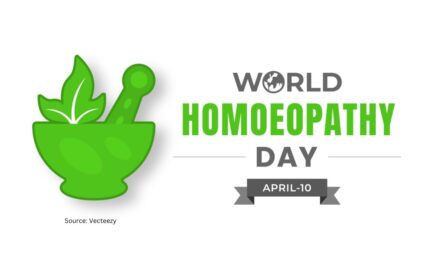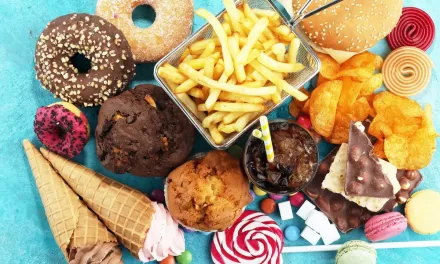A new study led by researchers at University College London (UCL) has found that toddlers in the UK consume nearly half of their daily calories from ultra-processed foods (UPFs), with the intake rising as children grow older. Published in the European Journal of Nutrition, the study examined data from 2,591 children born in 2007-2008, revealing that by the age of 21 months, toddlers were obtaining 47% of their calories from UPFs, and this increased to 59% by the time they turned seven.
The research found that flavored yogurts and wholegrain breakfast cereals were the most common UPFs consumed by toddlers. By the age of seven, children’s diets had shifted to include sweet cereals, white bread, and puddings as the dominant UPFs. These foods, often seen as “healthy,” can still pose health risks due to their high levels of added sugar and salt.
Dr. Rana Conway, the lead author from UCL’s Institute of Epidemiology & Health Care, stated, “Ultra-processed foods are not all bad for our health, and the foods typically eaten by the toddlers in our study are ones that are seen as quite healthy. However, some wholegrain cereals and flavored yogurts have high levels of added sugar and salt, and our study found that toddlers who consumed more ultra-processed foods also had a higher intake of these ingredients.”
The concern is particularly relevant as toddlers generally consume more sugar and salt than recommended by UK health guidelines. According to Dr. Conway, this pattern could negatively affect the development of taste preferences, leading to a reduced likelihood of enjoying natural whole foods later in life.
The study highlights the long-term implications of early eating habits. Senior author Professor Clare Llewellyn, also from UCL, explained, “Eating patterns in the early years are important, as they help set habits that can persist through childhood and into adulthood. This was reflected in our findings, with 21-month-olds who ate more ultra-processed foods also likely to be higher consumers of ultra-processed foods at the age of seven.”
Examining the Impact of UPFs
Researchers used data from the Gemini twin cohort study, employing the Nova classification system to categorize food and drink consumed by the children into four groups: unprocessed or minimally processed foods, processed culinary ingredients, processed foods, and ultra-processed foods. UPFs are typically industrially produced and contain ingredients such as emulsifiers, colorings, and sweeteners not commonly found in home-cooked meals.
The toddlers were divided into five groups based on their UPF consumption, ranging from 28% to 69% of their total calorie intake. The researchers found that those who consumed the most UPFs at 21 months were 9.4 times more likely to remain high UPF consumers at age seven. The “hyperpalatable” nature of these foods, high in fat, sugar, and salt, may drive this sustained consumption.
Alarmingly, in all groups, the toddlers exceeded the UK government’s recommended limit of 5% daily calorie intake from free sugars. In the two highest UPF-consuming groups, added sugar intake surpassed 10% on average, heightening concerns over long-term health risks, including obesity and metabolic disorders.
Policy Recommendations for a Healthier Future
The study’s authors have called for urgent policy interventions to reduce the prevalence of UPFs in children’s diets. Suggestions include restricting the promotion of unhealthy foods to children, adding warning labels to high-sugar products, and subsidizing healthier, minimally processed foods.
Dr. Conway acknowledged the challenges parents face in the current food environment, where processed foods are often cheaper and marketed as healthy. “It’s not easy to feed children healthily in our current food environment. Highly processed foods are often cheaper than the foods parents would like to give their children, such as fresh fruit and vegetables.”
The research also highlighted the rise of commercial baby and toddler foods that, while not classified as UPFs, mimic their textures and appeal. The researchers cautioned that these products could limit children’s exposure to whole vegetables and discourage healthier eating habits.
Study Limitations and Future Research
The researchers noted that their sample overrepresented families of white ethnicity and higher socioeconomic status compared to the UK population, which may limit the generalizability of the findings. However, the study still provides valuable insights into how early exposure to ultra-processed foods can shape dietary habits in children.
The study underscores the need for public health strategies to curb the growing reliance on ultra-processed foods among young children, setting the stage for healthier eating habits throughout life.
More information: Ultra-processed food intake in toddlerhood and mid-childhood in the UK: cross-sectional and longitudinal perspectives, European Journal of Nutrition (2024). DOI: 10.1007/s00394-024-03496-7












